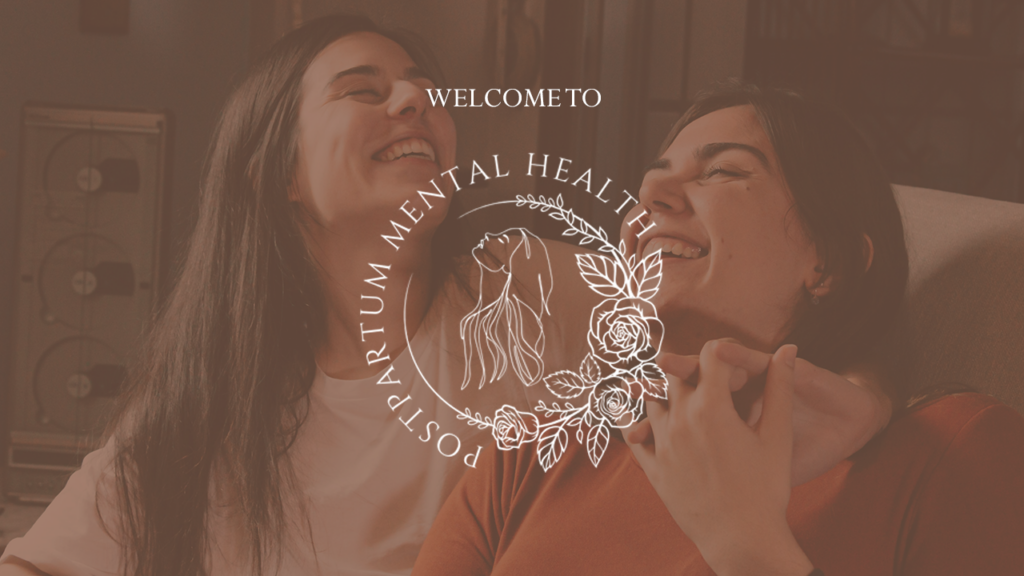
The event of giving birth usually brings happiness to parents, but some mothers face a flood of extreme fury immediately following childbirth. Postpartum rage describes the sudden anger fits along with frustration, which makes new mothers experience uncontrollable irritability. Managing postpartum anger requires more than surviving a challenging time because postpartum mood swings, together with anger, create emotional instability, which harms both interpersonal connections and maternal abilities.
But relief is possible. Postpartum rage therapy creates unique strategies to handle postpartum irritability that enable mothers to recover emotional control and restore their confidence.
Postpartum Mental Health delivers total medical assistance and educational services to new mothers. Therapies help women solve the fundamental problems of postpartum frustration to develop stronger emotional strength, which leads to mental serenity during their first months of motherhood. Reach out to a professional for help for anyone facing this condition or those who notice its effects in someone else.
Postpartum rage describes the sudden anger fits along with frustration, which makes new mothers experience uncontrollable irritability. Managing postpartum anger requires more than surviving a challenging time because postpartum mood swings, together with anger, create emotional instability, which harms both interpersonal connections and maternal abilities.
But relief is possible. Postpartum rage therapy creates unique strategies to handle postpartum irritability that enable mothers to recover emotional control and restore their confidence.
Postpartum Mental Health delivers total medical assistance and educational services to new mothers. Therapies help women solve the fundamental problems of postpartum frustration to develop stronger emotional strength, which leads to mental serenity during their first months of motherhood. Reach out to a professional for help for anyone facing this condition or those who notice its effects in someone else.

Medical studies show that postpartum rage symptoms exceed hormonal changes because they signal a combination of complex emotional distress, which intensifies from inadequate sleep and overwhelming duties towards a new baby. The simultaneous occurrence of postpartum emotional outbursts leads mothers to develop postpartum stress management complications that produce feelings of isolation, guilt, and shame.
Postpartum rage presents itself through a variety of symptoms ranging from minor irritability to extreme yelling, crying, feelings of helplessness, and isolation. This condition commonly affects mothers, yet health professionals must examine symptom intensity because untreated conditions might mean the presence of postpartum depression or anxiety.
After childbirth, numerous new mothers develop overwhelming postpartum anger, known as postpartum rage. Medical studies show that postpartum rage symptoms exceed hormonal changes because they signal a combination of complex emotional distress, which intensifies from inadequate sleep and overwhelming duties towards a new baby. The simultaneous occurrence of postpartum emotional outbursts leads mothers to develop postpartum stress management complications that produce feelings of isolation, guilt, and shame.
Postpartum rage presents itself through a variety of symptoms ranging from minor irritability to extreme yelling, crying, feelings of helplessness, and isolation. This condition commonly affects mothers, yet health professionals must examine symptom intensity because untreated conditions might mean the presence of postpartum depression or anxiety.

After childbirth, a sharp drop in hormones like estrogen and progesterone can trigger mood shifts, leading to postpartum rage symptoms such as irritability and anger.
The exhaustion that comes with caring for a newborn can exacerbate postpartum frustration and stress management, increasing emotional instability.
The overwhelming responsibilities of new motherhood can elevate the likelihood of postpartum emotional outbursts.
Women with a prior history of postpartum depression, anxiety, or other mental health issues are at a higher risk of experiencing postpartum rage.
Insufficient emotional or physical support can increase the likelihood of postpartum frustration and stress management struggles, contributing to feelings of anger and isolation.
A history of trauma, abuse, or neglect can elevate the risk of intense anger after childbirth.
After childbirth, a sharp drop in hormones like estrogen and progesterone can trigger mood shifts, leading to postpartum rage symptoms such as irritability and anger.
The exhaustion that comes with caring for a newborn can exacerbate postpartum frustration and stress management, increasing emotional instability.
The overwhelming responsibilities of new motherhood can elevate the likelihood of postpartum emotional outbursts.
Women with a prior history of postpartum depression, anxiety, or other mental health issues are at a higher risk of experiencing postpartum rage.
Insufficient emotional or physical support can increase the likelihood of postpartum frustration and stress management struggles, contributing to feelings of anger and isolation.
A history of trauma, abuse, or neglect can elevate the risk of intense anger after childbirth.
Treatment of postpartum rage needs both therapy approaches and support networks to assist mothers who want to restore emotional stability.
The Postpartum Mental Health program delivers specific postnatal care to mothers dealing with anger issues, irritability, and emotional distress, which frequently develop after giving birth.
Treatment of postpartum rage needs both therapy approaches and support networks to assist mothers who want to restore emotional stability. The Postpartum Mental Health program delivers specific postnatal care to mothers dealing with anger issues, irritability, and emotional distress, which frequently develop after giving birth.
Motherhood counseling under the supervision of licensed therapists helps women discover why they experience postpartum rage symptoms and learn better adaptation methods. Individual therapy assists patients by improving their understanding of themselves while teaching stress management skills for difficult circumstances.
Perinatal psychiatrists at our organization deliver individualized treatment for moms experiencing both postpartum rage and emotional distress. Medical psychiatry employs complete patient care, and this healthcare system becomes essential for improving mood balance while fixing long-term mental wellness.
Mother groups and peer support circles enable mothers to meet others who experience the same emotional challenges. These meetings create social unity and help mothers manage their postpartum anger by discovering alternative stress and emotional management techniques.

Through Cognitive Behavioral Therapy (CBT) mothers gain abilities to detect and rewrite the mental patterns that produce postpartum emotional outbursts. The skills taught through Dialectical Behavior Therapy (DBT) allow mothers to control distress and manage emotions thus enabling postpartum anger and interpersonal challenges management.
Our approach teaches patients about how eating habits affect mental health stability. The stability of mood and energy depends on proper nutrition since it helps minimize postpartum rage effects. Nutrition counseling during our sessions provides individualized dietary assistance to mothers in choosing foods that build emotional strength.
The practice of mindfulness along with stress reduction methods enables new mothers to develop peaceful methods for handling stress and postpartum frustration. New mothers become better equipped to manage their responsibilities after practicing relaxation techniques that reduce emotional outbursts.
Motherhood counseling under the supervision of licensed therapists helps women discover why they experience postpartum rage symptoms and learn better adaptation methods. Individual therapy assists patients by improving their understanding of themselves while teaching stress management skills for difficult circumstances.
Mother groups and peer support circles enable mothers to meet others who experience the same emotional challenges. These meetings create social unity and help mothers manage their postpartum anger by discovering alternative stress and emotional management techniques.
Perinatal psychiatrists at our organization deliver individualized treatment for moms experiencing both postpartum rage and emotional distress. Medical psychiatry employs complete patient care, and this healthcare system becomes essential for improving mood balance while fixing long-term mental wellness.
Through Cognitive Behavioral Therapy (CBT) mothers gain abilities to detect and rewrite the mental patterns that produce postpartum emotional outbursts. The skills taught through Dialectical Behavior Therapy (DBT) allow mothers to control distress and manage emotions thus enabling postpartum anger and interpersonal challenges management.
Our approach teaches patients about how eating habits affect mental health stability. The stability of mood and energy depends on proper nutrition since it helps minimize postpartum rage effects. Nutrition counseling during our sessions provides individualized dietary assistance to mothers in choosing foods that build emotional strength.
The practice of mindfulness along with stress reduction methods enables new mothers to develop peaceful methods for handling stress and postpartum frustration. New mothers become better equipped to manage their responsibilities after practicing relaxation techniques that reduce emotional outbursts.
Postpartum Mental Health staff members possess deep expertise in treating postpartum rage alongside emotional challenges that specifically affect new mothers. We deliver specialist care for mothers by understanding their individual needs because of their unique motherhood experience.
Each mother undergoes an individual motherhood journey that differs from every other woman. Our organization designs custom treatment strategies for every person based on their specific requirements because we address postpartum stress and frustration through therapeutic care systems, practical support, and lifestyle modifications.
Our therapeutic approach incorporates DBT, CBT, and mindfulness practices to provide mothers with complete support, which covers their mental and physical recovery during their path from postpartum emotional outbursts.
Postpartum Mental Health offers mothers a respectful space that allows them to share their feelings while receiving sympathetic care. Postpartum irritability requires trustworthy environments with emotional safety to achieve successful healing outcomes.
to provide mothers with virtual therapy services to help them manage their postpartum rage at home. Connect with our expert team from the comfort of your home and begin your journey toward emotional healing and balance.
Obtaining support has become easy to access. Postpartum Mental Health works out of Orange County, California to provide mothers with virtual therapy services to help them manage their postpartum rage at home. Connect with our expert team from the comfort of your home and begin your journey toward emotional healing and balance.
Postpartum Mental Health exists to assist new mothers who face postpartum anger and postpartum rage symptoms through specialized virtual therapy sessions. Our team of experts delivers remote therapy to assist mothers with their postpartum irritability, along with postpartum emotional outbursts, mood swings, and anger.
Our experts exist to assist mothers dealing with strong anger after childbirth while addressing postpartum stress and frustration. Don’t let these challenges define your motherhood journey – reach out to us today for therapy for postpartum rage and start your path to emotional healing and stability.
Postpartum rage emerges as severe anger and testiness that develop following childbirth because of hormonal fluctuations and sleep deprivation, together with emotional distress. Postpartum rage shows itself as extreme anger through sudden emotional reactions that differ from the depressive symptoms in postpartum depression. Women experiencing this condition manifest both emotional outbursts and impaired ability to manage their anger.
The following can be the reasons for intense anger and irritability after childbirth:
• Hormonal changes
• Sleeplessness
• Physical fatigue
• Inadequate support from others
• External social demands
The control of postpartum anger and irritability becomes possible by receiving therapy for postpartum rage and practicing mindfulness. The ability to handle postpartum irritability requires new mothers to learn emotional regulation strategies that can include Cognitive Behavioral Therapy or Dialectical Behavior Therapy for effective emotion management.
Yes, postpartum rage can sometimes be linked to underlying mental health conditions, such as postpartum anxiety, depression, and borderline personality disorder. It’s essential to seek postpartum psychiatric services to rule out or address any mental health issues that may be contributing to intense anger after childbirth.
Treatment for postpartum rage typically includes therapy for postpartum rage, nutrition counseling, stress reduction techniques, and medication. Postpartum counseling services and mental health therapy can help new mothers regain control of their emotions and develop healthier coping mechanisms to manage postpartum frustration and stress.